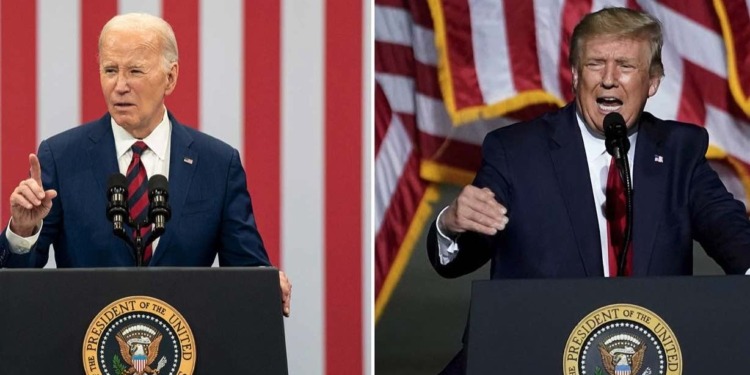The percentage of Americans who currently say only Biden would make a good president is six percentage points lower than it was four years ago when the same two candidates met for the first time, while the other readings are statistically similar to 2020.
Although there was little doubt at the start of 2024 that Trump would become the Republican nominee, he clinched the nomination during Gallup’s March 1-20 poll after winning enough delegates in the March 12 contests to put him over the threshold. Nikki Haley, his last-standing competitor, had suspended her campaign the previous week. Biden also secured the Democratic nomination on March 12, thereby setting into motion a rematch of the 2020 presidential election.
Gallup has measured views on this question at various points in four other presidential election years — 2004, 2008, 2012 and 2020 — and the current percentage saying neither candidate would make a good president is the highest among those years.
When incumbents ran in 2004 and 2012, between 8% and 17% of U.S. adults lacked faith in both candidates’ ability to be a good president. In 2008, an open-race year, 18% to 19% said the same. Gallup did not track this measure in 2016 when both nonincumbent candidates, Trump and Hillary Clinton, were unpopular.
Partisans Steady in Belief That Their Party’s Candidate Would Be Good President
Seventy-seven percent of Republicans think only Trump would be a good president, and 71% of Democrats say the same of Biden. The difference between the two parties is not statistically significant given the sample sizes of each group. Meanwhile, about one in five Republicans and Democrats each believe neither candidate would make a good president, and far fewer say both candidates or the candidate from the opposing party would.
At the same time, a 42% plurality of independents, the largest political bloc in the U.S., do not think either candidate would be a good president, and about one-quarter each think only Trump or Biden would.
These findings are not significantly different from four years ago.
Third-Party Candidates Appeal to Those Who Say Neither Candidate Would Be Good
Gallup asks those who say neither candidate would be a good president about their voting intentions in November, and nearly half, 46%, say they are most likely to vote for a third-party candidate, while 17% expect they will not vote for president. Another 33% say they will probably vote for Biden or Trump based on other factors.
Registered voters’ intentions are not significantly different from U.S. adults’.
Bottom Line
Americans are in a rare position this year, choosing between two presidential candidates who have already performed the job. Without the guesswork in evaluating one or both candidates, the public is divided in its views on who would make a good president — Biden, Trump or neither of them, with few saying both.
While most Republicans and Democrats believe their own party’s candidate is the only one who would be a good president, a plurality of independents think neither Biden nor Trump would be.
Those who do not think either candidate would do well in the White House are more likely to say they will vote for a third-party candidate than settle for Trump or Biden. There are currently several third-party candidates in the race, including Robert F. Kennedy Jr., Cornel West and Jill Stein. While third-party candidates’ viability can depend on how many state ballots they get on, they can act as spoilers by pulling support from major-party candidates — a concern for both the Trump and Biden campaigns this year.






























Discussion about this post